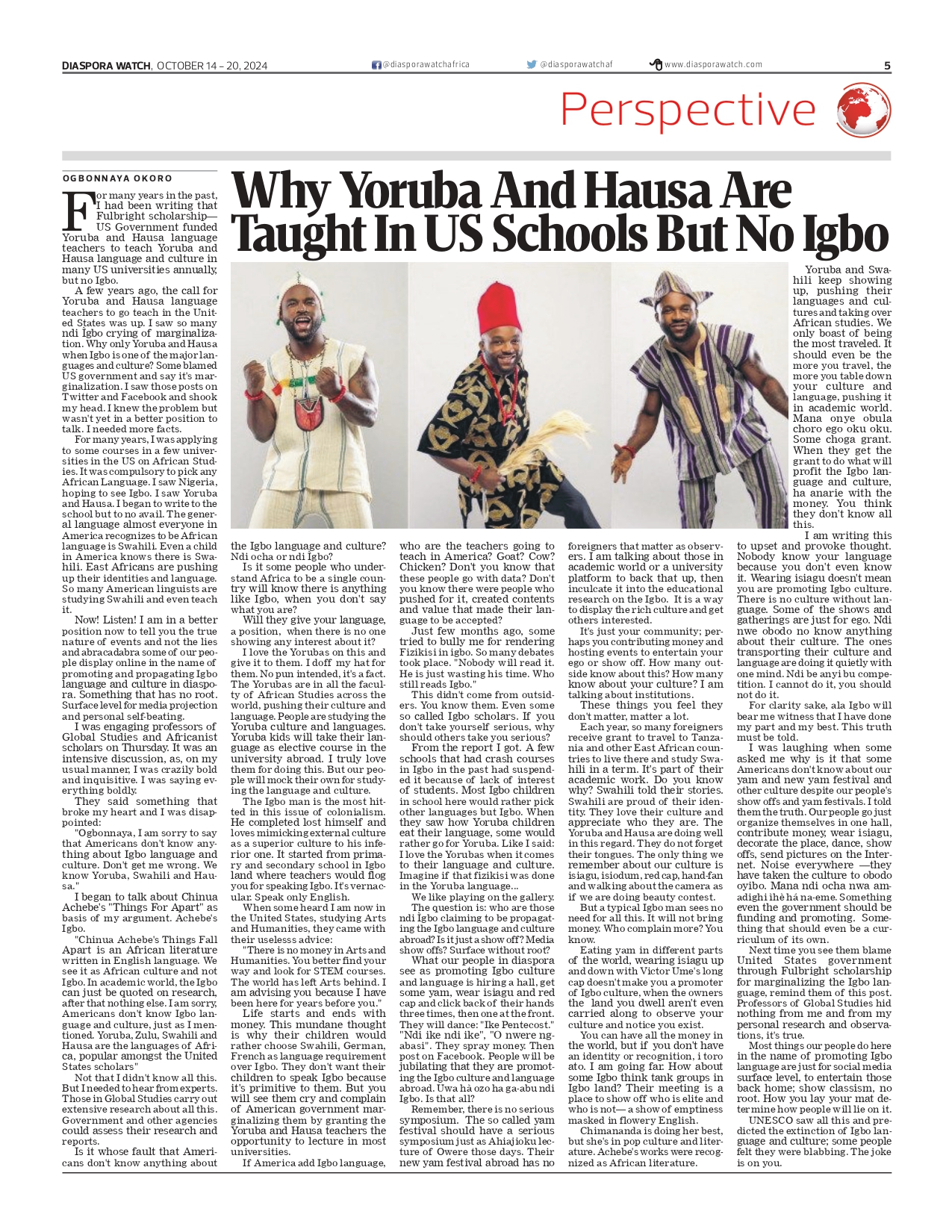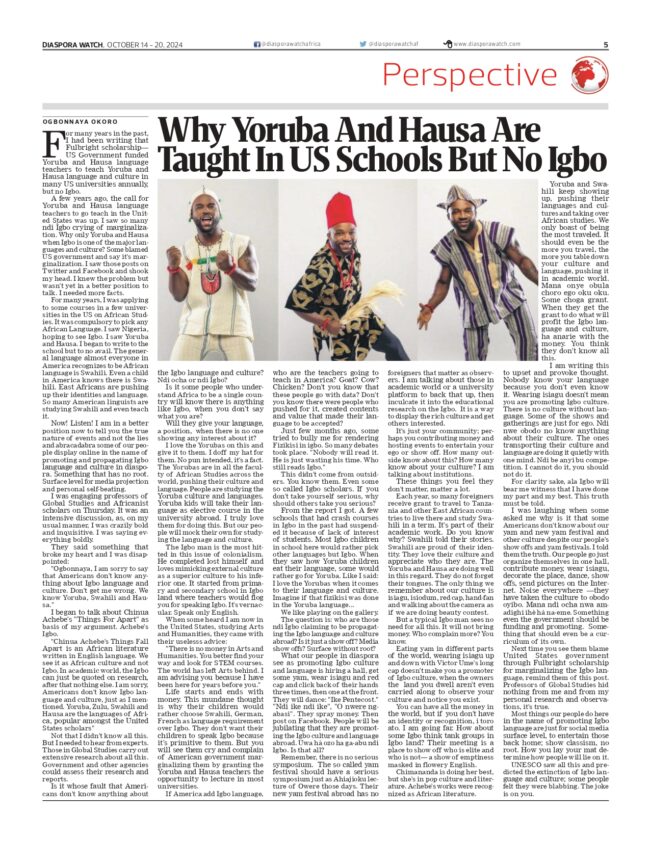
Why Yoruba and Hausa Are Taught in U.S. Schools

For years, Fulbright scholarships have funded Yoruba and Hausa language teachers to educate students in U.S. universities, but Igbo is missing from the curriculum. Many Igbos have pointed to marginalization as the cause. However, the deeper issue lies in the lack of concerted efforts to promote the Igbo language and culture at the academic level. Yoruba and Hausa have gained recognition through continuous advocacy, institutional support, and cultural pride—traits the Igbo community has yet to embrace fully.
Yoruba and Hausa speakers have taken pride in their heritage, embedding their languages into African Studies programs worldwide. Meanwhile, Igbo culture’s promotion has been superficial, limited to social gatherings rather than integrated into educational curriculums. While scholars globally study Yoruba and Hausa, Igbo remains marginalized due to the lack of a strategic push from within the community.
The reality is that American scholars and institutions go where the interest lies. Yoruba and Hausa have developed robust academic and cultural representation, while Igbo efforts are often more performative, lacking the depth needed to create lasting change. To secure a future for the Igbo language in academic spaces, the Igbo community must prioritize authentic cultural advocacy and academic engagement.
Dive into the world of Diaspora Watch and stay informed, engaged, and inspired.
FREE Digital View:
https://diasporawatch.com/diaspora-watch-20th-edition-october-14-20-2024-your-trusted-source-for-global-news-and-insights/
Print on Demand: https://www.magcloud.com/browse/issue/2918067?__r=1069759
SUBSCRIBE TO DIASPORA WATCH NOW ON THE BELOW LINK !!!
https://diasporawatch.com/subscribe-to-diaspora-watch-newspaper/
